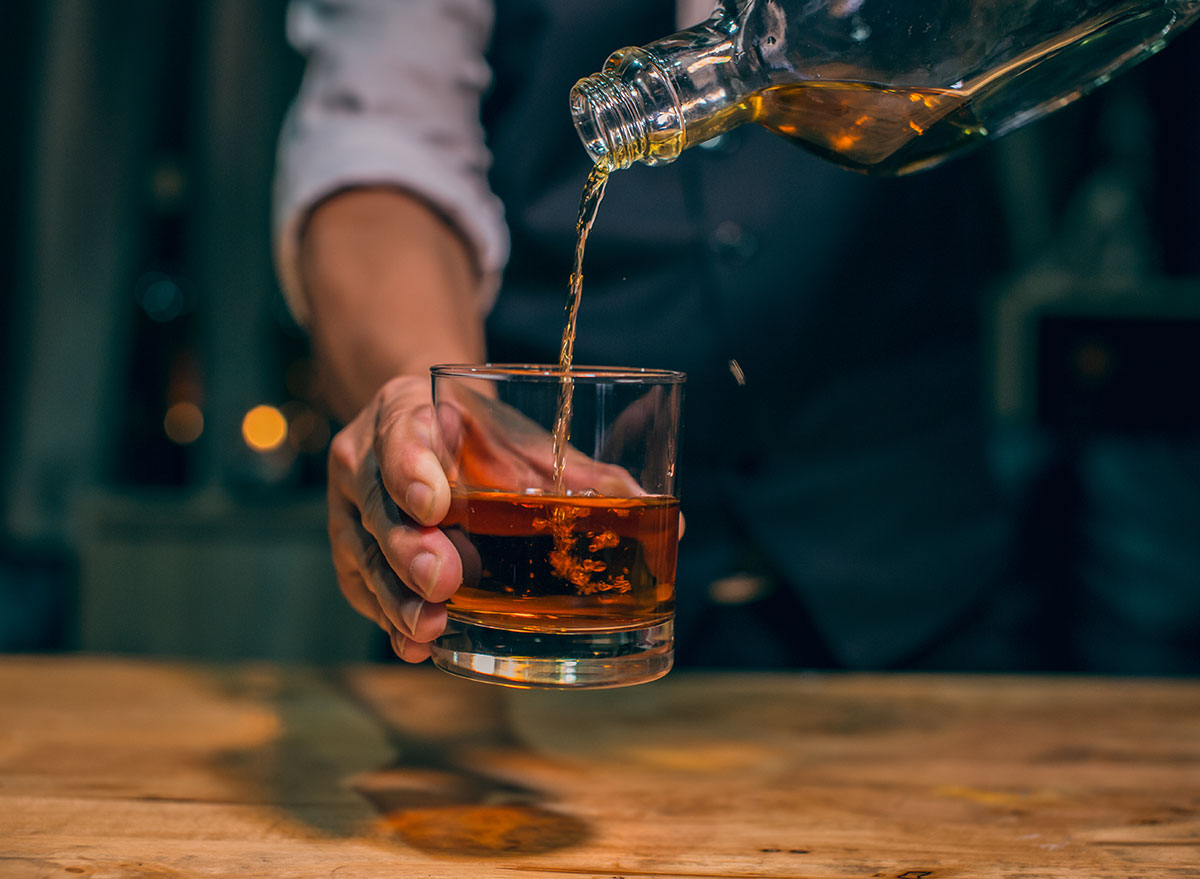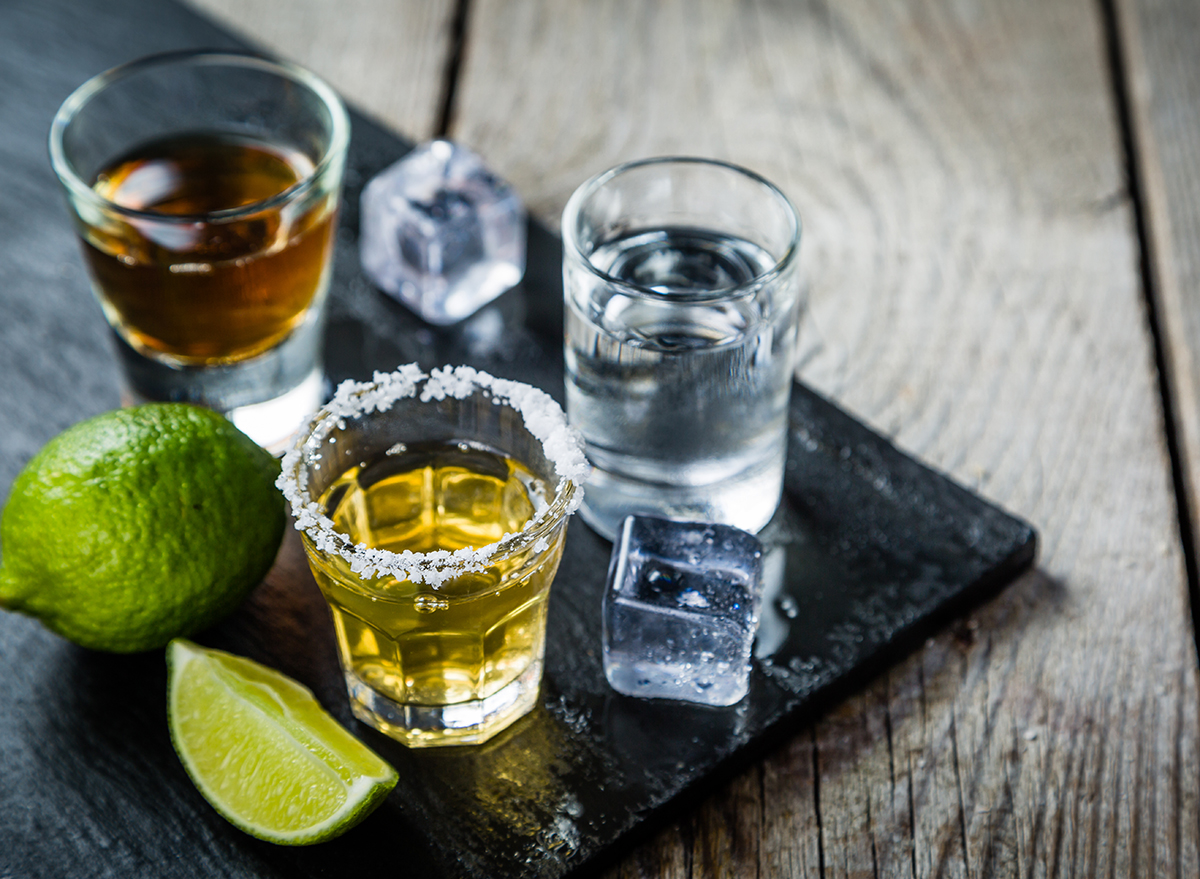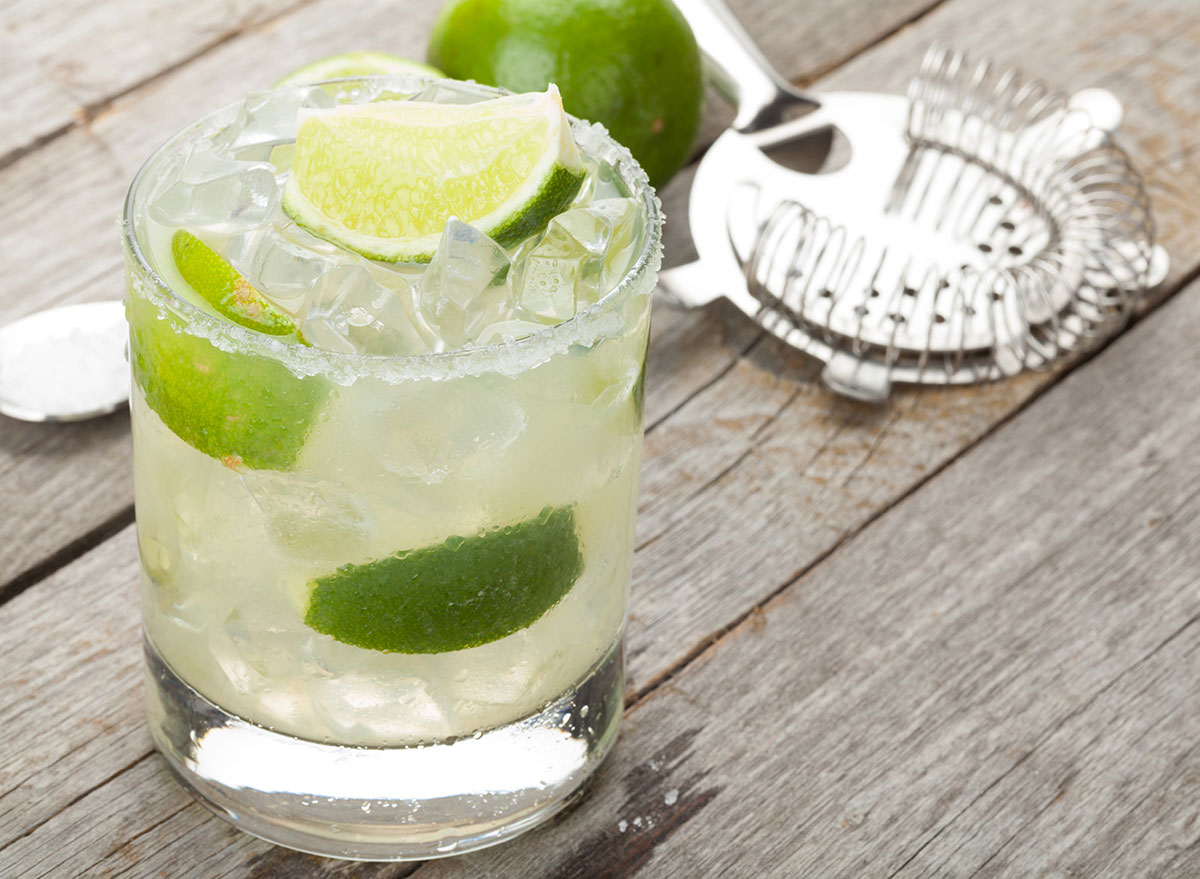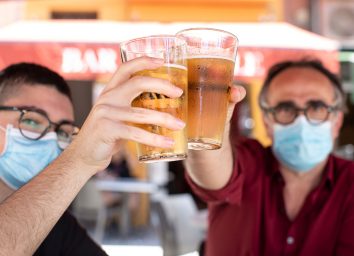Surprising Side Effects Alcohol Has On Your Liver, Says Science

A glass of wine every now and then won’t make a huge difference for your body’s health. In fact, it can give your body a boost of antioxidants and is connected to good heart health. However, going overboard on your wine—or any other type of alcohol—can start to have some serious negative side effects on your liver. If you’re drinking a heavy amount of alcohol during the week, it may be time to start considering cutting down on your alcohol use or even talking to a health professional.
According to the Addiction Center, consuming 2 to 3 alcoholic drinks a day (or even binge drinking moments of 4 to 5 drinks in a row) can cause harm to your liver. If these numbers seem accurate to your current alcohol consumption, here are a few surprising side effects that alcohol has on your liver. And for even more helpful drinking tips, be sure to check out our list of 108 Most Popular Sodas Ranked by How Toxic They Are.
Alcohol can cause fat to build up in your liver.

Excessive alcohol drinking can cause two different types of alcohol-related liver disease (ALRD) that can be detrimental to your health. The first is fatty liver disease, which can happen if you are drinking a large amount of alcohol over a short period of time (i.e binge drinking) according to the National Health Service (NHS) in England. Alcoholic fatty liver disease (ALD), also known as alcohol steatohepatitis, occurs when heavy alcohol consumption causes damage to liver cells, promotes inflammation, and weakens the body’s natural defenses, according to MedlinePlus.
When drinking an excessive amount of alcohol, even if it’s over a time period of just a few days, it can cause a build-up of fats in the liver, according to the NHS. Common symptoms of liver disease can include yellowish skin, abdominal pain, nausea, chronic fatigue, fever, and more. According to a study published by Therapeutic Advances in Gastroenterology, “ALD remains a major cause of liver-related mortality in the US and worldwide,” meaning the liver damage caused by alcohol can cause problems with your health later in life.
Nevertheless, alcoholic fatty liver disease can be reversed. Losing weight and exercising are some of the key elements to treating fatty liver disease, but crash dieting or rapid weight loss is a bad idea, according to Harvard Health. In order to reverse damage to your liver, sustained long-term weight loss—which includes healthy eating and regular exercise/movement—is key to seeing success in treating fatty liver disease. Restricting alcohol intake is also key for ALD treatment. The NHS says at least two weeks without drinking will bring your liver back to normal.
Get even more healthy tips straight to your inbox by signing up for our newsletter.
Alcohol can cause hepatitis and cirrhosis.

Maybe you find that having a few glasses of wine each night doesn’t seem like a big deal compared to a night of binge drinking, but over time, that alcohol consumption can cause some significant side effects on your liver’s health.
Two serious conditions of ALRD include hepatitis and cirrhosis. Hepatitis is an inflammatory disease that comes from a viral infection caused by drinking an increased amount of alcohol. Cirrhosis is permanent scarring of the liver due to long-term damage due to health conditions on the liver (i.e. a result of having hepatitis).
Here’s how this works—when you drink alcohol, some of your liver cells actually die. While these cells do regenerate, if heavy alcohol consumption (having over 2 drinks a day) is happening on a regular basis, your liver may have a reduced ability to regenerate the cells that protect your liver and keep it healthy. This is where permanent damage can occur.
Related: Here’s What Happens to Your Liver When You Drink Alcohol
Alcohol slows down the liver process.

While different types of ALRD can occur after heavy alcohol consumption, the actual act of drinking can cause your liver to slow down during alcohol consumption. Alcohol is broken down in the liver, but as you continue drinking, the process can slow down and it can be hard for your liver to break it down at the rate you are drinking, according to a journal published by Alcohol, Health & Research World.
It takes the body at least one hour to process an alcoholic beverage, and that time frame increases with each drink. The higher your blood alcohol content becomes, the longer the liver process will be. The non-processed alcohol will soon hit your bloodstream, which affects your heart and brain and makes you feel intoxicated, according to the Addiction Center. Speaking of the brain, here’s One Side Effect Alcohol Has on Brain Health, New Study Says.
Alcohol with medication can cause liver damage.

Along with all of the ways increased alcohol consumption can affect your liver, mixing different medications while drinking can also cause adverse side effects. Notice how your favorite drinks may have this warning on their labels? That’s due to the fact that mixing alcohol and particular medications can increase the risk of liver damage as well as internal bleeding, heart problems, and more, according to WebMD. The National Institute on Alcohol Abuse and Alcoholism has a long list of medications to avoid taking with a drink, including common medicines like Benadryl or Tylenol.
What’s the right amount?

Now that you know a few of the surprising side effects alcohol has on your liver, it’s good to start evaluating and changing up your alcohol intake during the week. According to the Dietary Guidelines for Americans, the intake for “moderate drinking” includes two drinks or less a day for men, and one drink or less a day for women. While even some diets promote drinking wine regularly—like the Mediterranean diet, which is considered the best overall diet for weight loss—it’s still important to limit your alcohol intake and find out a ratio that works best for your body’s health.
If you’re not sure the amount you should be drinking, talk to your doctor or another health professional who can help you set new health goals regarding your alcohol consumption.
Along with your liver, here are the Surprising Side Effects Alcohol Has On Your Immune System, Says Science.








